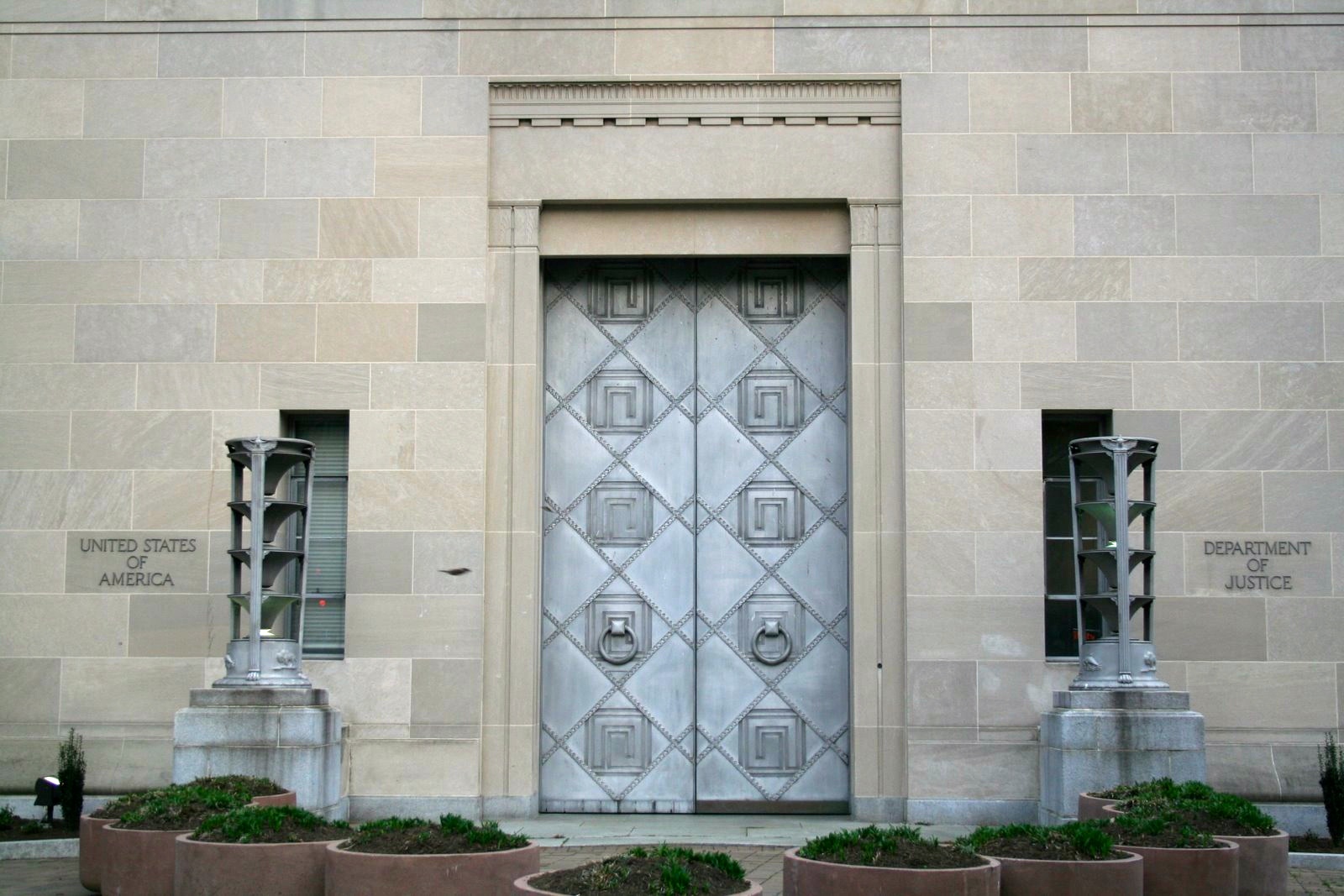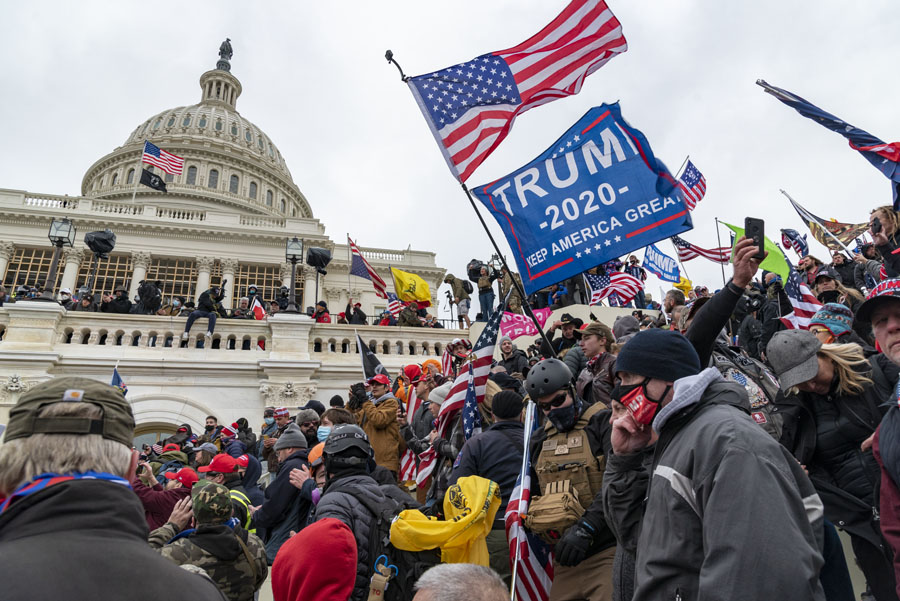The Situation: On the Corruption of the Criminal Process

The Situation on Monday advanced 21 basic truths about the protests in Los Angeles.
On Tuesday, the interim U.S. attorney for New Jersey announced the indictment of a sitting member of Congress for allegedly obstructing an ICE officer in the performance of his duties.
The indictment of Rep. LaMonica McIver (D-N.J.) is the latest in a string of charges brought by the Trump administration—and the string is growing long—that one has to consider political.
By political, let me be clear, I do not necessarily mean wholly without merit. What I mean, rather, is that these indictments are politically convenient for the administration, that they target political opponents of the administration or its policies, or that they have a tendency to intimidate people inclined to contest administration immigration policy.
Whether some or all of them may also have merit is a matter that one cannot assess prospectively. Right now, we only have indictments, charging affidavits, and motions for detention. How well the administration’s claims will hold up as the cases progress is a matter of speculation, not fact. I’ll do some speculating below, and for reasons I’ll explain, I suspect a lot of these cases will not hold up. But for now, let’s start with the list itself, along with a few analytical observations about how we might think about these cases:
- Judge Hannah Dugan, a Milwaukee County judge accused in a two-count indictment in May of helping an alien in her courtroom evade ICE officers who had come to detain him.
- Kseniia Petrova, a graduate student initially detained by immigration authorities for bringing undeclared frog embryos through customs. When it became clear that she could make a compelling argument against being deported to Russia and was likely to be released on bond from immigration detention, she was charged by criminal complaint with allegedly smuggling the embryos.
- Kilmar Abrego Garcia, the Salvadoran Maryland resident accidentally deported to El Salvador along with a large group of Venezuelan alleged gang members and the subject of a court order to “facilitate” his return, was returned to the country last week to face a two-count indictment in Tennessee for alien smuggling and conspiracy to smuggle aliens. The government’s detention memo contains a number of additional, uncharged allegations.
- David Huerta, president of the Service Employees International Union in California, has been charged by criminal complaint with conspiracy to obstruct a federal officer in connection with protests in Los Angeles last week. The affidavit in support of the charges alleges that Huerta urged people to block ICE officers who were executing warrants and that he sought to impede an ICE vehicle.
- Rep. McIver is accused of similar but more aggressive behavior during a confrontation with ICE in New Jersey recently, when she allegedly got in the way of officers who were trying to arrest the mayor of Newark for being improperly on the grounds of a detention facility. Rep. McIver, like Huerta, allegedly tried to physically impede the arrest and (unlike Huerta) laid hands on an officer, and while charges against the mayor were dropped, she faces a federal indictment.
These charges in these cases are by no means of comparable weight. Those against Huerta and McIver, even if true, amount to a scuffle with law enforcement—a protest that got a little bit physical. While the charges carry real penalties, it’s hard to imagine either of them serving long prison sentences for these charges. By contrast, the allegations against Abrego Garcia, if provable, are deadly serious and potentially carry massive prison time.
I venture the guess that the cases are also of uneven quality, which is to say that prosecutors might well have an easier time proving some than others.
What they all have in common is this quality of flowing directly from the political interests of the Trump administration. Abrego Garcia and Petrova would not have been charged but for the maniacal desire to deport as many people as possible as quickly as possible—and to use the criminal justice system to justify positions taken in the immigration system that may have backfired. The charges against Dugan, Huerta, and McIver result from the desire to crack down on people who in any way impede the rush to deport.
None of this means the cases aren’t provable—or that the charges aren’t valid. It is possible for a case to be both political and merited. And if these cases go to fair trials before juries that convict, well, fair enough.
But if you detect a note of suspicion in my tone here, it’s because I am, in fact, suspicious. These are all people who have, in one way or another, embarrassed the administration or stood for an aggressive posture of resistance to its immigration policies. It’s mighty convenient to shackle them all with criminal charges. It sends a message to others. And in some cases, like that of Abrego Garcia, it solves a political problem too—allowing the administration to comply with the court order to facilitate the man’s return without seeming to back down from its claims that he’s a really bad guy.
The suspicion, in other words, is that something other than the criminal justice merits of these cases is animating the decision to prosecute. Such suspicions are heightened when, for example, the chief of the criminal division of the Middle District of Tennessee resigns on the day that Abrego Garcia is indicted. And yes, that’s an allegation of corruption of the justice system.
There’s an easy way to test this hypothesis—to determine whether the corruption is real or a function of Trump Derangement Syndrome on my part.
Federal prosecutors win an overwhelming percentage of the cases they bring. The vast majority of cases result in guilty pleas. A smaller number result in conviction at trial. Fewer than ten percent of cases either get dropped or result in acquitals at trial.
If my hypothesis here is right, some of these cases are going to fall apart. The reason is that the usual rigor of federal investigation and prosecution will have given way to other considerations: the desire to solve problems for the president, the desire to punish people who embarrass his policies, the desire to send a message to uppity members of Congress and union leaders who get in the way. When the usual standards slip, the success rate goes down.
So here’s my prediction: At least two of these cases will fall apart before trial or result in a failure to convict at trial. I say at least two, because one might be a fluke. Anyone can bring a weak case. But a forty percent failure rate, predicted in advance, is not a fluke in the federal criminal justice system.
There is a great deal of space—a yawning chasm, in fact—between the probable cause necessary to charge a person and the proof beyond a reasonable doubt necessary to convict that person. The traditional posture of the modern Justice Department is not to play in that space, that is, not to indict someone whom the government doesn’t believe in good faith would be convicted by a fair jury. This principle, enshrined in the Justice Manual, is the reason the government’s success rate in trials is so high.
I believe that for political reasons, the Trump administration has decided to play in that space, that is, to charge and indict people whom it does not reasonably expect to convict. The criminal justice process, even without a conviction, is a special kind of punishment. It is ruinously expensive. Even the vindicated always carry the taint of their indictments. And it’s all really time-consuming. Tie up your enemies in criminal processes and they will be less effective as enemies.
I don’t say any of this lightly. It’s a heavy allegation. But we’ll know if I’m right when the scorecard comes in on these five cases.
The Situation continues tomorrow.





